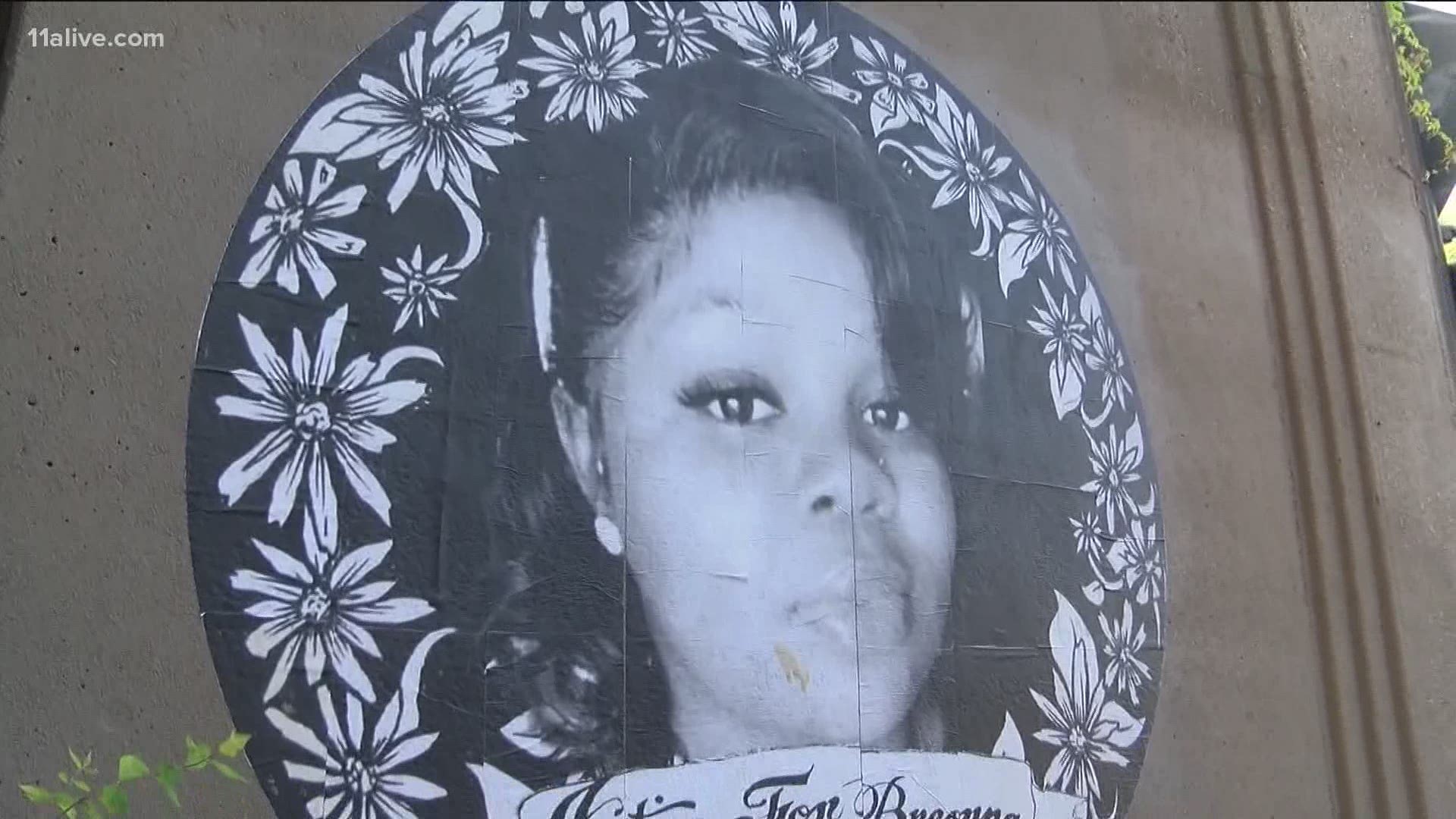SOUTH FULTON, Ga. — In honor of Breonna Taylor, the City of South Fulton is taking a stance against no-knock warrants. The city adopted a resolution that prohibits the action, "except in situations where there are clear and present threats to officers’ safety," a statement from the city said.
The council passed the resolution this week, that bears the name Breonna Taylor No-Knock Warrant. It honors the 26-year-old, who as killed in Kentucky when police came firing into her apartment on March 13. The action was done under the authority of a no-knock warrant.
"It’s been four months since Breonna Taylor was senselessly murdered in her home,” Councilman Mark Baker said, who sponsored the resolution.
Authorities said Taylor was shot multiple times during the execution of the warrant after her boyfriend Kenneth Walker fired on officers after thinking it was break-in.
"The City of South Fulton’s police force never has executed a no-knock search warrant, but it now has clear guidance on the limited circumstances in which it can, thanks to a resolution adopted by city officials," the news release says.
RELATED: Why do police use no-knock warrants?
The resolution affirms that officers can't execute or participate in a no-knock search warrant within the city, unless exigent circumstances exist. However, even then, the police chief must sign off on it before it is presented to judges for approval.
The city said when officers execute a warrant, they must knock in a way that can be heard by someone inside a residence.
"They also must verbally announce they are officers with search warrants and wait 15 seconds after those announcements to enter residences," the news release states.
11Alive reached out to a few other local agencies about their policies for no-knock warrants. Below is the list of responses that we've gathered so far.
From the Gwinnett County Police:
Policy does not specifically prohibit their use but does require approval from an assistant section commander. It is extremely rare that these types of warrants are obtained because of the increased risk to the public and law enforcement. Prior to obtaining them a magistrate judge has to sign off on the warrant after hearing probable cause on why the use of such a warrant is necessary.
From Cobb County Police:
Cobb County Police, like most other agencies, can apply for a “no-knock” provision in a warrant, but such provisions are usually only granted in certain extreme cases (i.e.—an extreme danger to the life of the officers serving the warrant, the possibility of escape of a dangerous suspect, the potential for destruction of evidence, etc). Agencies may apply for such provisions, but it is up to each county magistrate issuing the warrant to note whether there is probable cause to approve the no-knock provision or not.

